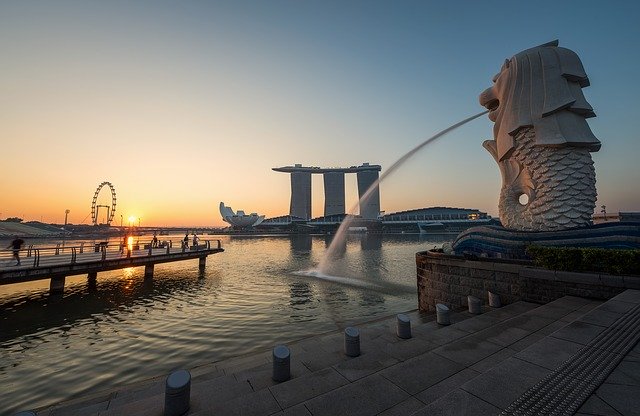KUALA LUMPUR, Dec 27 – With more than 500 Omicron cases, including some unlinked community infections, Singapore is dropping its risk containment approach for the new Covid-19 variant in favour of living with the virus.
Singapore’s Ministry of Health (MOH) said in a statement yesterday that 546 confirmed Omicron cases, comprising 443 imported and 103 local infections, have been detected as of December 25. Last week, Singapore’s MOH identified 13 unlinked community Omicron cases and 78 Omicron cases from linked local transmission.
“Based on our updated understanding and international experience with the Omicron variant, we expect more cases of Omicron infections than for Delta but proportionately fewer severe cases or deaths, due to the lower severity of the Omicron variant and protection from vaccinations and boosters,” said Singapore’s MOH.
“The adjustments to our measures aim to strike a balance between slowing the spread of Covid-19 and continuing with our plan to live with Covid-19. With the higher transmissibility of the Omicron variant, we must expect a new wave of local cases soon.
“However, the peak of the wave can be blunted and we can avoid overwhelming our health care system again if everyone plays their part to get their vaccinations and booster doses, self-test regularly and self-isolate if tested positive. Those who have recently arrived from overseas or been in contact with an infected person should also be socially responsible and reduce their social interactions.”
As such, Singapore is shifting its approach towards Omicron and will manage infections of the new variant like previous coronavirus variants from today.
Omicron cases will no longer be isolated in designated quarantine stations by default, but will instead be subject to existing Protocols 1-2-3. Under Protocol 1, unwell cases will either be placed under the Home Recovery Programme or sent to Covid-19 treatment facilities or hospitals, with 10-day discharge for vaccinated people or children aged below 12 years or 14 days for unvaccinated individuals.
Under Protocol 2, people who are well but test positive will continue to self-test and self-manage, using antigen rapid tests to discharge from the third day onwards.
Close contacts of Omicron cases will be placed on Protocol 3 – where they will be issued a seven-day health risk warning and be required to self-test for Covid-19 with antigen rapid tests every day before leaving their homes – instead of being quarantined in designated facilities for 10 days.
Singapore’s MOH said contact tracing efforts would shift back towards self-reporting by family members and using digital tools like TraceTogether, and ring-fencing vulnerable settings like hospitals, nursing homes, aged care homes, and preschools.
“The adjustments in our approach for managing local Omicron cases will allow us to focus our health care resources on severe cases and protecting the vulnerable settings. It also allows us to go back to having a single streamlined approach to manage Covid-19, regardless of Covid-19 viral strains, which will facilitate operations on the ground and compliance to the protocols.”
Singapore also yesterday ended its travel ban on African countries Botswana, Eswatini, Ghana, Lesotho, Malawi, Mozambique, Namibia, Nigeria, South Africa, and Zimbabwe, in light of Omicron spreading widely across the world.
Singapore’s MOH added that it would partner with community general practitioners (GPs) to care for individuals with mild symptoms under an expanded Protocol 2 in the next step towards living with Covid-19.
Covid-19 vaccination will be required from January 15 next year for workers to return to their workplace, as Singapore’s MOH removed the concession for unvaccinated employees to show a negative test result in lieu.
All companies are also encouraged to implement regular testing for employees. Singapore will conduct a second round of voluntary distribution of antigen rapid tests for workplaces. Firms with employees that work onsite may apply for eight antigen rapid test kits per onsite vaccinated employee for weekly testing over a two-month period if they require funding support.
“Given the transmissibility of Omicron and the open nature of our society, it is inevitable that Omicron will spread in our community, as it has in over 100 countries already. In the coming days and weeks, we should expect more community cases, and rapid doubling of cases.
“This is again a process we need to go through, in order to live with Covid-19. We have done whatever we can to prepare ourselves for it; especially in administering boosters to our population and starting vaccinations for our children. We seek the cooperation and understanding of everyone, as we weather through an Omicron wave in the next one to two months.”








